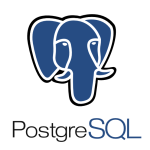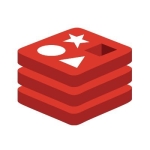
Microsoft Azure Cosmos DB Valuable Features
Overall, Microsoft Azure Cosmos DB is phenomenally easy to use; it is very good. As NoSQL databases go, or as an Azure product, it's great. The search, configuration, and ease of cost management have been a really great experience.
The efficiency of search capabilities is significant, particularly when it comes to the flexibility of conducting in-depth, almost recursive searches that are both efficient and cost-effective. We are currently part of an early access program for a new feature called Fleet Spaces. This feature allows us to manage costs across different tenants effectively. In our setup, each customer has a dedicated tenant in Microsoft Azure Cosmos DB, which means we do not share databases. This approach provides the additional security and restrictions our customers desire, and it helps avoid issues related to noisy neighbors. However, the challenge with this model is that we cannot easily share costs between tenants. Fleet Spaces offers a solution that combines the benefits of multi-tenancy while still isolating each customer's tenant. This is especially important for large enterprises and marketing companies that prefer to keep their content completely separate from others. Additionally, we can share bursts of resources across these tenants, allowing us to gain some advantages of multi-tenancy without compromising security. The vector search functionality is also noteworthy, as it provides all the necessary tools for implementing AI-driven search capabilities. My architect could probably add more insights, but overall, we are pleased with the solid uptime and reliability of this new feature.
The speed of search with Microsoft Azure Cosmos DB is 10 to 100 times faster, and while I don't have a metric yet for recall, I can say that the actual ability to get more content does not have a static metric currently.
The most valuable feature of Azure Cosmos DB is its scalability. That is the biggest reason I use Azure Cosmos DB.
I also like its developer-friendliness. It is very easy to begin with. Microsoft and Azure are good with that. With all the getting started information and all the introductions, it is very easy to begin with. Optimization is where it gets a bit trickier. That is where you need to be more active and understand why things are not performing as they used to. Most of the time, performance is not a problem. It is always fast. The problem is more around the cost consequence of that performance.
Its vector capabilities are new. They were implemented just months ago. There are probably three things that we were looking to address by using the vector database. The number one is the cost of Azure AI search and indexing. Before this feature came out in Azure Cosmos DB, the alternative for me was using AI search, which is way more expensive if using it as a vector database. Now with Azure Cosmos DB, that price point becomes much more accessible. That is number one.
Number two is the developer familiarity aspect of things. AI search is more around enterprise use cases or enterprise search and requires more specialized skills to begin with, whereas Azure Cosmos DB is more or less a commoditized developer platform that is much more accessible to a wider developer audience. That is another aspect that it has addressed. For example, if I have a new starter in my team, it is easier to train that person on Azure Cosmos DB than the AI search. With the explosion of LLMs, AI agents, and things like that, the vector database on Azure Cosmos DB is a good place for developer onboarding. It is just way easier.
The third part is still related to the developer experience, but in terms of the SDK aspect, the libraries available for Azure Cosmos DB are already well-established in the ecosystem. With the vector database capability, it is just a matter of adding an extension of those existing libraries. That means if the applications that are already using Azure Cosmos DB want to jump to the vector database, the jump would not be that big. It is just a matter of implementing it directly with their existing Azure Cosmos DB that they are already using.
We have used the vector database with Azure AI services. The other aspect is using the vector database with document intelligence. We use document intelligence to process a raw PDF document and things like that. From there, we convert that into embeddings, and then those embeddings will be stored in the vector database. It is something we use as a landing spot for new LLM applications.
The quality has improved because, traditionally, we did things in batches. We processed documents once a day or every twelve hours or so. With this new capability, we are very confident to run those processes in real-time. As new documents come in, the process and the workflow can get triggered. It is not a batch anymore. It is in real-time.
Azure Cosmos DB’s ability to search through large amounts of data is yet to be determined. Large is subjective at the moment. I have only tested it up to 2 gigabytes, and for that, it is working pretty well.
Azure Cosmos DB is our default. We do not question it anymore. After migrating out applications from an SQL database to Azure Cosmos DB, the change in the organization is massive. Especially on the application side of things, app developers are much more productive and lean. Previously, we had to go through a very rigorous process. To add new columns, tables, and other things, we had to work with DBAs. With Azure Cosmos DB, we can have a PoC and POV in weeks, sometimes days, instead of six months. That is how the whole NoSQL ecosystem changed our life cycle and productivity.
Azure Cosmos DB has changed our total cost of ownership for old applications, but not for new applications. For those who are still using SQL Servers or other databases, there was an added TCO because different projects are using different databases, whereas about 10 or 15 years ago, we had just Oracle, SQL Server, or IBM. For new applications, it is the default for us, so there is no change in TCO.
View full review »SS
Siddharth Sameer
Senior Data Engineer at Bajaj Finserv
The best features of Microsoft Azure Cosmos DB are the way it maintains the data in partitions and its retention policies.
Their new feature, dynamic data masking, is very cool and useful for us.
Since we are one of the largest NBFCs in India, maintaining customer data in a DB, we have to take care of their personal information related to their identity. Microsoft Azure Cosmos DB rolled out this feature about six months ago. Though it's not GA yet, we are running our POC on that feature where you can hit a particular API which Microsoft has provided. Whatever fields you define in JSON, when hitting the API, it will automatically mask all personally identifiable information for each customer in the database. If you have 100 million data points for customers, according to that JSON set of rules, it will automatically mask everything. This is really helpful in our business.
Regarding search capabilities through large amounts of data, Microsoft Azure Cosmos DB performs well when using combinations of primary keys. If we want to search through one of the instances or databases, it works efficiently. The performance largely depends on how optimized your SQL query is and how effectively you use the primary keys.
View full review »Buyer's Guide
Microsoft Azure Cosmos DB
September 2025
Learn what your peers think about Microsoft Azure Cosmos DB. Get advice and tips from experienced pros sharing their opinions. Updated: September 2025.
870,623 professionals have used our research since 2012.
AH
Alexander Hughes
Solutions Architect at CompuNet
The most valuable features include the global write capability, which allows customers to read and write across different regions simultaneously, enhancing performance and availability.
A lot of my customers like the ability to choose a different API with which they are familiar. The flexibility to choose different APIs, such as MongoDB or Cassandra, allows customers to leverage their existing knowledge while using Microsoft Azure Cosmos DB.
We are using the vector database a little bit. We often use Azure AI search for that capability. We have an application that is taking in legal documents and needs to do a semantic search against those. It is a combination of using the embedding models and vectorization to get closer to the right chunks of the documents that they are looking for. We, in turn, send that over to Azure OpenAI services to fine-tune and get the best result from our initial results.
We integrate the vector database with another application. It is a custom-built homegrown application that provides a UI for their end-users to be able to use AI search and vector search to be able to get highlighted results of their PDFs.
The vector database absolutely improved the search result quality of our customer's organization. They are partially using Microsoft Azure Cosmos DB in that, but, in general, the two combined absolutely did help by not defaulting only to keyword search and being able to do a hybrid between the two.
For this project, there has been significant improvement in the time to process these documents. There has been a 5x time reduction for the end users in finding the data they are looking for, inputting it into their model, and performing their workflow.
In terms of Microsoft Azure Cosmos DB’s ability to search through large amounts of data, for this specific use case, we are probably on the low end of what Microsoft Azure Cosmos DB can accomplish. We have a decent dataset, but definitely not a gigantic one. So far, our experience has been great, but we are not necessarily testing it to its limits. The one that we are working on is still under a terabyte. We only have several hundred gigabytes for this specific customer. It is a lot of data, but in the grand scheme of things, it is not very much.
View full review »FG
Fabien GOUINEAU
Architecte Cloud at Visiativ SA
Microsoft Azure Cosmos DB is not complicated to use; it's very user-friendly. The engine is approachable, and it's straightforward to implement, manage, and migrate. Microsoft Azure Cosmos DB improves reliability through replication in many regions in Azure. MongoDB, for comparison, is more complicated for replicating all clusters worldwide.
Microsoft Azure Cosmos DB is simple in many tasks, and for application performance, we can set many models for scaling, autoscaling, and pay-as-you-go models. We are more efficient with these features. The best feature of Microsoft Azure Cosmos DB is the replication all over the world. The second notable feature is the simplicity of deployment.
Microsoft Azure Cosmos DB is a good general-purpose database with low cost. For our little workload, it's very interesting to work with Microsoft Azure Cosmos DB. The ability to deploy a world-replicated Microsoft Azure Cosmos DB is very efficient in terms of cost.
View full review »AV
Abhishek V S
Associate Data Scientist
The best features of Microsoft Azure Cosmos DB include its support for asset properties, which makes it more secure and easy to understand. The auto-increment feature is particularly good, and overall, it remains user-friendly and supports multiple SDKs effectively.
Microsoft Azure Cosmos DB demonstrates good capabilities for searching through large amounts of data. It is easy to maintain, offers good quality, and is straightforward to understand and deploy. Its scalability is excellent, supporting all asset properties.
Microsoft Azure Cosmos DB is quite easy to use. It offers five to six types of inference options such as Python and NodeJS, or REST APIs, and we primarily used Python. Python was very helpful because it is easy to read, easy to understand, easy to implement, and easy to maintain.
The initial deployment of Microsoft Azure Cosmos DB, particularly involving managed identity and service principal, is quite challenging due to insufficient documentation. However, deploying via key access works and is easier.
The most valuable feature of Microsoft Azure Cosmos DB is its ability to handle concurrency and consistency. In scenarios with heavy usage where multiple users or services are accessing Microsoft Azure Cosmos DB or updating and creating new documents, its ability to manage such interactions in a performant way is outstanding.
For me, it is easy because I have a lot of experience with it, but it is easy for most people to get started with Microsoft Azure Cosmos DB. The more challenging aspect is modeling your data for the best performance. That is one of those things where there is a little bit of a learning curve to do it correctly, but there is a lot of good information out there on how to do that.
View full review »I appreciate Microsoft Azure Cosmos DB's robust document management and consistent availability. The databases are always operational, ensuring continuous accessibility and simplifying disaster recovery procedures. The geo-redundancy feature is particularly valuable, especially for European operations.
View full review »It works similarly to MongoDB when using NoSQL. When deploying on Azure, the communication is rather easy without many steps and complications, though this is more a benefit of Azure rather than Microsoft Azure Cosmos DB specifically. The queries take a similar amount of time compared to other databases, but the database management system provides a better-looking UI for viewing data compared to other solutions.
The queries in Microsoft Azure Cosmos DB are faster when trying to fetch specific fields from JSON or run particular queries on a container.
View full review »Azure Cosmos DB offers numerous data connectors that provide a platform for seamless integration with various platforms and visualization tools such as Power BI. It allows connection via multiple data connectors to integrate data in any desired format.
Additionally, its distribution and low latency features are beneficial. We do not need to rewrite things. We can copy a schema from a template.
It offers efficient indexing and low search latency, making searching fast and efficient and ensuring peace of mind in database operations.
View full review »Our team has found the vCore index to be one of the most valuable features. We have tokenized and vectorized our entire database and stored this data in MongoDB collections with a vCore index, which works like magic for keyword selection.
Additionally, the interface is user-friendly and seamlessly connects with other Azure offerings, making integration with other services easy. The learning curve was short. Our experts understand data well, but they had to build knowledge of the AI stack. It took a little bit of learning. However, it was easy to understand. In a couple of weeks, they could do everything.
The vector database is the core feature we use. Our data was not accurate, and we wanted to create a ChatGPT-type functionality where the user could ask a question in plain English like, "Show me the top 10 vegan companies in the US." But the vegan is not tagged as "vegan." It could be "plant-based," so you add that keyword. Then, it's not the end of it. Things are tagged as soya
milk," "oat milk," etc.
There was no other way to solve our problem with hallucination and deal with a huge volume of structured and unstructured data. The only option is to vectorize. And we looked at several vector databases, but none came close. The vector database integrates seamlessly. When we use the cosine similarity search and retrieve the keywords. These keywords then eventually feed into our SQL query formation. After that, we use OpenAI to summarize everything. It seamlessly integrates with everything.
Some of the best features of Microsoft Azure Cosmos DB are that it could scale, and we could still use SQL language through a Linq type query.
The aspect I appreciate most about Microsoft Azure Cosmos DB is the scalability. Horizontally, we can add as many servers as possible, which is very key for us as a company. Another important feature is that it is a globally distributed product that comes with numerous benefits. The real-time analytic features it offers, as opposed to structured query language features, provide real-time analysis for our retail and marketing operations. The integrated features, such as Azure Snipes link, enable easier running analytics for our operations. Additionally, we have noticed that it positively impacts our transactional performances as a company.
View full review »The fact that scalability can be achieved by simply configuring availability zones is very attractive. We aimed to avoid managing a NoSQL database, especially when we did not have an upper limit on how much audio we would need while doing the initial development. The ability to easily scale with the increase in usage and adoption of our product is the most valued feature.
Microsoft Azure Cosmos DB offers the response times needed for advanced analytics applications. It supports multiple use cases, including storage of AI model results and temporary information repositories.
Performance and security are valuable features, particularly when using Cosmos DB for MongoDB emulation and NoSQL. The platform's ability to efficiently tokenize AI models for later consumption is also a benefit.
Within the layer, we're using it with OpenAI. That is the main one. If we use document intelligence from the entire database layer, it is where we have our developments deployed on Kubernetes pods that connect and leave data.
Microsoft Azure Cosmos DB is very fast. Data retrieval and data storage are very quick. It is known for its speed and efficiency, with quick data retrieval and storage operations without latency. You can do a lot of operations in real time.
We value the replication and regional availability features that Cosmos DB provides. The replication includes read replicas and write replicas. The recent addition of vectorization and similarity comparisons add values for AI workloads. The performance and scaling capabilities of Cosmos DB are excellent, allowing it to handle large workloads compared to other services such as Azure AI Search.
The solution is straightforward in terms of the interface, API set, and automation capabilities. The learning curve is short if you're familiar with the world of non-relational data. It takes about three to six months to learn about the distribution capabilities of Cosmos as a service. It takes a bit more time to learn the networking settings that you can use for Cosmos in South Asia, including virtual networks, private networks, finance, etc.
The vector database is interesting. We haven't used it before. We were using Azure AI search for that, but we've had great conversations with the product team, and we realize that a couple of workloads are more appropriate for Cosmos. The search results quality is still determined by Azure AI search, and we haven't used vector databases in production workloads. However, from what we've seen from a hands-on demo, it can help.
The ability to scale automatically is very valuable. Additionally, multi-region support automatically synchronizing to a different region for multi-region applications is a cool feature. It's more of a lift with other databases to configure that extra region and set up replication, even if it's on the cloud. With Azure, it's just a button click. It's that simple.
The learning curve depends on your background. It takes time to learn if you're from a relational database background like us. However, it's fairly straightforward from a scalability perspective once you get the hang of it. You need to be aware of certain concepts like partitions and partition keys. Once you get those, I think it's fairly okay.
The searching capability is exceptional. It is very simple and incomparable to competitors. With SQL, we have to install everything, but this is pretty quick. We have a Bicep template. Using the Bicep template to create Microsoft Azure Cosmos DB containers and partition keys makes everything convenient. Scaling is also convenient.
The features that stand out as most valuable are the autoscaling and hierarchical partition keys. We use account IDs at a higher level and entity IDs at a lower level. That gives us optimal query performance for our workloads.
AI has been a game-changer for new people without expertise, making it easier to use and optimize. You can ask GPT or Copilot for optimization strategies. If you have queries that are not performing well, you can feed the same queries, execution plan, and other things to the AI. The AI returns reasonable recommendations for what to do.
Cosmos DB is effective at handling large queries. At DocuSign, we're processing over a billion signers and massive agreements and contracts. These things are being used for business-critical workloads, so performance, scale handling, and latency are crucial. Without these, we wouldn't have a product that anyone would want to use.
View full review »BP
Bernard Parinas
Co-Founder at arpa
Microsoft Azure Cosmos DB is a good solution for distributed application requirements. We can perform multi-modeling. For modern applications, I would recommend Microsoft Azure Cosmos DB. It caters to different types of applications and also provides an API base wherein you can perform automated updates for your Microsoft Azure Cosmos DB resources.
It provides all the common features that other database solutions offer. The difference is that Microsoft Azure Cosmos DB is cloud-hosted. You can host it on-prem, but running in the cloud simplifies everything in terms of support and availability.
The most valuable feature is the data writing process, where we write data into batch segments. The built-in vector database is helpful. There's one vector for the product and another for the price. I don't have much experience with vectors because we use Cosmos as a cache DB. You won't see any major challenges when you use it as a more significant enterprise application. I would rate the vector database's interoperability with other solutions an eight out of 10.
The global synchronization feature of Azure Cosmos DB stands out as the most valuable for me. It is a reliable and consistent storage solution, suitable for various data types. It is always available. Additionally, it is cost-effective.
View full review »VR
Vinicius-Ribeiro
Data Architect | Montdata Technology at Montdata Tecnologia
With Azure being our main cloud, the valuable features of Microsoft Azure Cosmos DB include integration with other Azure products that we're using and governance inside Azure. For integration with other products inside the Azure cloud, it was a better choice.
It was easy to use and optimize Microsoft Azure Cosmos DB, as it was not difficult to configure.
AK
Aditya Jitendra Kshirsagar
Software Engineer at a tech vendor with 501-1,000 employees
The best part of Microsoft Azure Cosmos DB is that with the default configuration and the Azure functional pipeline, if your go-to cloud provider is Microsoft Azure, the whole integration is seamless. Doing it by SDK or any other way, through a POST request or HTTP request, is easy, and that is documented, so that is a plus point.
Apart from that, the NoSQL database with SQL query support is a significant advantage. You can have both semi-structured and structured data stored in JSON and then have SQL queries run over it, which can be more advantageous compared to other providers.
PC
Patrick Chanez
COO & CTO at inexto
What I appreciate most are the latency and the access, which are guaranteed by the tool, which is really impressive. I appreciate that it's a platform as a service that allows me not to think about capacity or operation, which makes a big difference for us.
Azure Cosmos DB's resiliency is valuable. It is available in every Azure region, allowing quick information storage and retrieval. We can partition it to improve indexing, enabling us to retrieve information and recreate website content quickly.
It's easy to use for our use case because we use it to store and retrieve information, but it will be more complex if you are configuring a Redis cache or something similar.
Cosmos DB also integrates well with Azure app services and functions, allowing us to scale by efficiently storing calls. Its ability to scale workloads is impressive, and features like partitioning and Azure replication enhance its scalability. Its interoperability with solutions is better than that of other NoSQL databases we assessed. It's native to Azure and integrates with the networks and security.
The features most valuable to us in Microsoft Azure Cosmos DB are the auto scale and change feed. These features allow us to do some operations that are not possible with SQL Server. It is super configurable, allowing us to pick and choose the different Cosmos databases we need, whether or not dynamic scaling is the right thing for that workload.
Latency and availability are incredible. Given that our data is partitioned and indexed correctly, we can run queries and get results in less than five milliseconds. This has resulted in happier customers.
Cosmos is super-easy to use. It adopts a whole document database strategy with no relational data, so what you see is what you get. It's straightforward to understand, and you no longer need to worry about entity diagrams.
PO
Patrick Oguaju
Software developer at a insurance company with 501-1,000 employees
The best features of Microsoft Azure Cosmos DB include the speed to query data; as long as you index properly, retrieving data is fast and lightweight.
Additionally, the scalability to scale your RUs when pushing large amounts of data to Microsoft Azure Cosmos DB and managing the speed or latency for read and write is crucial, depending on how you set it up.
Big data, along with data analysis, is one of the valuable features. We are able to have insights into how to make improvements in the processes for operational people.
Microsoft Azure Cosmos DB is a Microsoft solution specifically, but we can develop with different developer kits for different databases.
View full review »Azure Cosmos DB's graph queries are its most valuable feature. Although I have not yet explored vector search, it's coming to Cosmos DB, and I plan to look into it. Having data in a flat-file format in a document database speeds up processes, which is the primary purpose. Additionally, Cosmos DB's use of the Mongo platform makes it intuitive and cost-effective.
I use Azure AI services, including cognitive services and OCR. I recently built a chatbot using the model. Cosmos DB integrates well with other apps.
View full review »The best feature about Microsoft Azure Cosmos DB is its interface, which is awesome for accessing data. Additionally, its indexing capabilities and responsiveness allow us to get information with a very excellent SLA, making it suitable for our IoT-based applications where we can update the statuses of devices in real time, which is an outstanding feature. Microsoft Azure Cosmos DB has helped us improve the search result quality in meaningful ways.
The user interface of Microsoft Azure Cosmos DB is the best part of the entire Microsoft ecosystem; I find it to be the best user interface you can ever hope for, especially when compared to AWS and GCP, which do not measure up as well.
View full review »KK
Kunal Karn
System Administrator Technology Services Engineer at a retailer with 10,001+ employees
The best feature of Microsoft Azure Cosmos DB is API access, which makes it very easy to interact with the database without needing to write queries. It's also fast. As it's Microsoft-provisioned, the cloud is very accessible and reliable as well.
We love the ability to land data with Cosmos DB easily. Cosmos is native to Azure, so everything works seamlessly with it. You need good data to have good AI, and Cosmos makes it easy to land the data.
The recently added ability to mirror to Fabric has been beneficial. Cosmos DB enables us to handle transactional and analytical workloads in the same database.
Cosmos DB is easy to use. You can set up a database with a couple of clicks, and it's simple to scale it up and down based on your needs. Within Azure, the Explorer UX has been great for us, too. You don't have to install another tool to run a quick query or explore some data. Additionally, the ability to estimate your Cosmos costs through the portal and manage features has been useful.
Like most database tools, it takes some time to understand. If you come from SQL or even from the Mongo world, many concepts will be familiar to you. While it takes some learning and expertise, it's not a large hill to climb. You must learn the advanced capabilities, but they make your solutions more powerful.
The vector database requires an additional engineering step to move the data from a transactional database to a vector store so that you can query it and use it in AI. However, because the vector capabilities are built in, it saved us engineering time and allowed us to get our solution out faster.
View full review »In Microsoft Azure Cosmos DB, one valuable feature is its ability to store data in multiple regions. If one region fails, it automatically switches to a healthy region, ensuring minimal latency and disaster recovery without impacting data latency in applications. It scales automatically based on query performance and peak traffic.
Microsoft Azure Cosmos DB is very easy to use.
View full review »RC
Rusty Coulbourne
Lead Software Architect at CPower
Change notification works well, and the ability to process documents in a scalable way is important. This means we can efficiently thread out different operations and meet our organizational performance and scalability needs.
Cosmos DB is pretty straightforward. I'm not 100 percent an expert. I have three or four different developers up to speed on it and working on it. They do most of the daily operations, while I do a lot of the prototyping and conceptual aspects.
While we don't use the vector database system, some interesting features might benefit our future data architecture. In one of the workshops, we learned about its capabilities and how it's used as part of Copilot and the backend database. I'm thinking about AI, our data, and some performance benefits.
The most valuable feature of Microsoft Azure Cosmos DB is its real-time analytics capabilities, which allow for turnaround times in milliseconds. This is crucial for applications like fraud detection.
Using and optimizing Cosmos DB is relatively straightforward. We talk regularly with the Microsoft team, and hands-on help is available when needed, so the experience was seamless.
We have migrated to Cosmos' vector database search from Azure AI Search. We don't face too many challenges with interoperability because everything is built on Azure, and we don't have any multi-cloud applications.
Azure AI services integrate and perform well with the vector database. Sometimes, we struggle to customize the RAG pipeline instead of using the embedded settings. Those are rare use cases, but they are useful for most use cases.
The search capabilities work well once you have your data set up. It's more of a challenge in the knowledge-based integration than the modeling side. Our data is scattered. SharePoint, Confluence, and meeting minutes data are separate. We are working actively to make all the data flow.
View full review »SB
Swarnajit Bhattacharjee
Data Center Engineer at Tata Consultancy
Microsoft Azure Cosmos DB is very easy to use once you understand the process, and we have a very good team. Because it is more costly compared to other services, the Microsoft product team takes customers very seriously. If any issue arises, they immediately join calls with customers to troubleshoot problems.
Microsoft Azure Cosmos DB has significantly improved the quality of search results, making searching easier compared to other services such as ADF, data factory, or SQL databases. Compared to AWS, Microsoft Azure Cosmos DB is user-friendly and offers robust features.
The Microsoft product team is proactive and engages with customers, helping to update features and resolve issues promptly, demonstrating a commitment to customer satisfaction. The learning curve for Microsoft Azure Cosmos DB is manageable, as it didn't take much time for me to grasp the basics. With the right information, even new users can learn the fundamentals in about two to three months.
The high speed of Azure Cosmos DB compared to other competitors is remarkable. It is one of the most powerful features, offering high availability and high speed. Its benefits can be seen immediately after the deployment.
View full review »The peace of mind that Microsoft Azure Cosmos DB provides regarding global distribution is invaluable. In traditional databases, you need to consider how to scale, whether horizontal scaling is possible, and handle multi-regions, multi-masters, redundancy, and other concerns when building a world-scale solution. We get most of these features with Microsoft Azure Cosmos DB essentially included.
Cosmos DB's greatest strengths are its easy setup and affordability, especially for those who understand its usage. Compared to products like Oracle's Autonomous JSON, Cosmos DB offers greater driver and code support, making it significantly easier to learn and use.
View full review »It has been very efficient so far. The team has been using it for quite a while. I am new to the team, but they always talk about how efficient it is. We are using the NoSQL version. It is easy to use for development. It is reliable and quick.
It has been pretty efficient when it comes to search. I have no complaints about that. It is easy to use and very compatible with Java.
View full review »The standout features are its ability to do data compression easily and the ability to scale horizontally. We initially used Azure Cosmos DB NoSQL, a document-based database, but as our application grew, we realized the relationships between entities were becoming more complex and NoSQL was no longer suitable. To address this, we migrated most of our data to Azure Cosmos DB for PostgreSQL, a relational database, while retaining the original NoSQL database for telemetry data. This approach offers two key benefits: simplified data compression, thanks to seamless integration with our ORM, Prisma, and horizontal scalability, providing the flexibility to expand our database capacity as needed quickly.
View full review »The solution is used because we get faster response times with large data sets than with SQL. It's essential for us because we have half a billion rows, and we need to return them quickly.
We primarily use Cosmos DB because it's a managed platform service, eliminating concerns about hosting and reliability. Its geo-redundancy feature allows us to share data globally across three data centers in US Central, East US, and West US, with US Central as the primary write region and the others for reading. Additionally, we leverage Cosmos DB's auto-scaling features, including burst capacity, database-level, and collection-based auto-scaling, and dynamic scaling per region/partition, to accommodate our fluctuating workloads throughout the day.
View full review »Cosmos DB is a document database that stores data in JSON format for faster retrieval of unstructured data. I personally appreciate the speed, which is significantly better for unstructured data, especially since Cosmos DB had JSON as a data type early on.
It's pretty easy to use and optimize since it's unstructured data. It sometimes takes time since it's in JSON format, but it's useful in the admin section. The learning curve isn't long if you have some SQL knowledge because the queries are similar. It's straightforward for anyone with database exposure.
We don't use the vector database, but we're aware of it and we know that it will allow faster retrieval with Azure AI integrated.
View full review »The flexibility and scalability are valuable. You have multiple models. You have serverless, and then you have provisioned throughput, auto-scale throughputs, and so on on top of reserved capacity possibilities where you prepay for capacity. I like that. It gives us a lot of flexibility. The scaling is instantaneous as well. You immediately have all the resources available. The fact it is NoSQL makes it powerful.
View full review »We chose Azure Cosmos DB initially because of the type of data that we needed to store. We have a schema that is very nondeterministic and flexible. It is always changing based on whatever data we need to acquire from different devices, so we needed a document store with a flexible schema.
In addition to that, our customers are globally located, so we needed a database store that could be globally accessed and had minimal latency, good throughput performance, good query performance, as well as scalability. All of the things that you look for in a good piece of software about performance, scalability, high availability, and disaster recovery are available in Azure Cosmos DB. Because of that and because it is a flexible document storage, we went with Azure Cosmos DB.
View full review »Microsoft Azure Cosmos DB simplifies the process of saving and retrieving data. The only requirement is to create the collection and streamline data management.
RJ
RavillaJaisimha
Software Architect at a tech vendor with 10,001+ employees
One valuable feature of Microsoft Azure Cosmos DB is partitioning. Its performance is very nice. I use it mostly on the Microsoft backend, particularly .NET and .NET Core technology. From deployment and accessibility aspects, there is significant performance improvement.
Additionally, consistency is noteworthy. For example, we have people spread across multiple locations. If they update data in Australia, we can access it in another location within a fraction of a second. That is an impressive feature of Microsoft Azure Cosmos DB.
It is very good from the optimization and usage point of view. It is very user-friendly. Microsoft also provides support from the performance aspect. They support us from the optimization and scalability aspects.
As a NoSQL database, it offers schema flexibility which simplifies design and reduces initial engineering overhead. This allows for rapid product delivery, especially for initial versions. The change feed is instrumental to our design and handling of data changes. Recent additions like partition-based scaling have significantly reduced costs of over $25,000 per month with minimal effort. These are just a few of the top features we appreciate about Cosmos DB.
PT
Panchanan Turuk
Full Stack Developer at a tech services company with 5,001-10,000 employees
Microsoft Azure Cosmos DB is a fully managed globally distributed NoSQL database. It is highly available with low latency and scalability. It supports multiple data models and APIs, making it flexible for different applications. Its features include multi-model support, global distribution, automatic scaling, and support for multiple APIs such as SQL API, MongoDB API, Gremlin, and Cassandra.
We can use Microsoft Azure Cosmos DB for storing and managing all types of data manipulations including inserting, fetching, and updating records. These operations can be performed efficiently.
The storage in Microsoft Azure Cosmos DB is globally distributed and highly efficient. Storing and retrieving data is much faster and more efficient.
It is cloud-friendly and easy to use. We can easily insert data and retrieve information from this cloud platform. The UI is better, faster, and efficient.
It supports various types of APIs and is a fully managed, globally distributed database that helps in different regions. Microsoft Azure Cosmos DB is a distributed and multi-model NoSQL database that supports SQL, MongoDB, and other platforms. Its scaling is managed using the request per unit, and it has auto-scaling based on business requirements.
The features include support for multiple NoSQL data models such as documents in JSON format, key-value store, graph database, wide column store, and MongoDB compatibility. In the document model, we can use the SQL API, while in the key-value store, we can use the table API. The Graph database is used for Gremlin.
It has a large capacity of up to 12 GB per physical partition per container. I have used up to three to four GB.
Its latency is high and impressive. The support is very high, with read-write latency at 10 ms per second.
It handles large-scale operations efficiently, such as tracking views, logs, or events. It has high write throughput and handles partition issues and storage growth effectively.
The availability and latency of Azure Cosmos DB are excellent. It handles large data insertions efficiently without any problems related to scalability. It scales workloads very well.
View full review »There are a number of different APIs or data storage supported in Azure Cosmos DB. Specifically, we are using the MongoDB API, so we leverage it in that way. I like the flexibility that it offers. My team does not have to spend time building out database tables. We can get going fairly quickly with being able to read and write data into a MongoDB collection that is hosted inside Azure Cosmos DB.
I found it very easy to use. We have been using it for five years, so it is quite flexible for us. The ease of use is quite high for us.
View full review »SB
Sreenivasulu Bodanapati
Software Applications Development Engineer at a tech vendor with 501-1,000 employees
Its scalability is great. Microsoft Azure Cosmos DB offers auto-scaling both horizontally and vertically. We haven't faced any issues.
The querying language and the SDKs they've provided over the years have been phenomenal, giving us a significant advantage. Being a NoSQL database with a schema-less design allows us to optimize costs and reduce the infrastructure we need to manage. While we don't utilize every feature, auto-scaling has been invaluable for optimizing both cost and performance on our platform daily.
View full review »The connectors, such as the MongoDB connector and the integration with SQL, are incredibly valuable.
View full review »I like the way you can create and delete records. You pass a JSON, and then it creates a record. It is easy to use because you don't need to know much about Cosmos DB or have prior experience.
Cosmos DB does a pretty good job of searching. I've never had trouble as long as I search for a unique key or value I'm looking for. If my query is right, it returns the value.
MS
Martin-Smith
Lead Data Engineer at ASOS.com Limited
The autoscale feature is the most useful for us.
View full review »The most valuable features of the Cosmos DB include its ease of use and optimization and its seamless integration with code. We do not use the built-in vector database capability, but its interoperability with Azure AI services is noteworthy.
Pretty much all of the features are valuable. Change feed is a pretty amazing feature. Once you make the changes, they are quickly read for you, and then you also have geo-replication. You can do a lot of things in your region, and the same regions can be replicated all over the world. There are different geographies. I can have my servers pretty much anywhere in the world. The data could be within the country or continent when there is a data restriction policy and things like that. Security is big. There are a lot of very good features.
It is very easy and very simple now given all the improvements, but it is also designed very well. Especially because we specialize in it, it is the easiest thing on our side. Data modeling happens to be a lot easier than SQL and others. The learning curve is a lot smaller than a typical RDBMS. It is very like code, and that is another benefit. Developers love it because you do not have to learn something new. You can use the same object that you are using in your code, and you can write stored procedures in JavaScript if you want to. If you want to do anything else, you could use the SQL API or NoSQL API, or you could use MongoDB API. It supports a lot of different APIs. You do not have to learn anything new, so the learning curve is way smaller than pretty much anything out there.
The best part of Azure Cosmos DB is that you barely have any maintenance. This is what I liked about it in the first place.
View full review »The most valuable aspect of Cosmos DB is its performance. It serves as the foundation for OpenAI's infrastructure, providing us with similar functionality. This not only prepares us for AI use cases but also efficiently supports our loyalty use cases. We can share information with our customers and deliver experiences without concern about performance.
View full review »The most valuable features of Microsoft Azure Cosmos DB include the TTL, the ability to scale up and down as needed, and geo-replication, which comes out of the box. We do not have to do anything for geo-replication. We just have to enable it.
The indexing policy is also very good, and the overall metrics and monitoring system are also quite good.
Microsoft Azure Cosmos DB is fairly easy to use.
View full review »ID
Ibisen De Brito Gonçalves
Big Data Engineer at a tech services company with 1,001-5,000 employees
I believe the best features of Cosmos DB are its global distribution capabilities. It supports multi-region replication with low latency in read and write operations and automatically adjusts throughput dynamically based on workloads. It ensures low latencies, offers consistency levels, and provides a serverless mode. Also, for this scenario, the solution was fast due to its serverless nature, allowing it to handle eighty-two million user profiles with low latency and swift connectivity with the advertising system.
View full review »When it comes to supporting IoT or real-time analytics, the main advantage is speed. Cosmos DB doesn't rely on traditional disks and database structures like a relational database. It uses JSON, which is similar to XML, and that makes it incredibly fast.
The way it was designed is most valuable for global distribution. Unlike old-school SQL Server that was intended for a single data center, Cosmos was built from the ground up for global availability.
Features like geo-clustering and mirroring were not afterthoughts. If you have a database in Chicago, you can right-click and easily create a failover group in Japan. That works well for global companies with offices across continents; it minimizes latency.
Cosmos's multi-model support made databases more highly available.
View full review »The most valuable features for our organization with Azure Cosmos DB are multi-master capability for applications, automatic failover ensuring high availability, scalability, support for multiple data models, and low-latency access. Additionally, the seamless integration with microservices running in containers adds another layer of efficiency to our operations.
In terms of performance versus scalability of this solution, you don't need to worry as long as you have your initial numbers in place. This product works by using performance currency, which is the number of request units per second. Once the data is ingested, based on that, we can know how many users are going to access across the world in every day, hour, or minute. Once you have the ingestion versus consumer pattern identified, you can use this product to input all those numbers, like the volume of data for migration.
View full review »Partitioning is helpful because we use it heavily. Partitions are really nice because they help with the collection of data. Not only is it fast to recall the data, but when you partition it, you can pull the partition and then query the exact document from that partition. It helps with data recall.
Microsoft Azure Cosmos DB is easy to use and implement for application programmers.
View full review »VS
Vinamra Singhai
Principal Engineer at a tech services company with 51-200 employees
Cosmos DB is a graph database. I could see the advantages when we implemented it because it didn't have much competition. MongoDB was doing it, but it wasn't a popular solution for graphs, structures, and hierarchy. The only competitor was Neo4j.
The graphical representation of data is the most valuable feature of the solution. We did not face any glitches.
Microsoft Azure Cosmos DB is fast, and its performance is good compared to normal SQL DB.
View full review »Our customer is very satisfied with it. Our branch does not use it yet. We used it for a customer, and the customer is very satisfied so far.
View full review »VM
Vineeth Marar
Cloud solution architect at 0
We use Cosmos DB for its key-value storage capabilities, while SQL Database is used for structured data.
View full review »The solution's read capacity and write access functions are very fast so users don't have to wait when fetching or displaying data on a screen. The main feature of an application is how it behaves toward the user. Users get uncomfortable when having to wait a long time. The solution's high-value data processing helps application performance data.
The solution easily integrates with the Microsoft cloud and other Microsoft products like Azure Active Directory. We use cloud storage for databases so this integration is very beneficial.
AB
Anoobis Bhaskaran
Lead Software Engineer at Glastechnische Industrie Peter LISEC GmbH
The solution's most valuable feature is its global distribution. We work globally and currently have Azure operating in fire regions. From a global distribution perspective, Microsoft Azure Cosmos DB is good and easy to handle. Since Microsoft handles the solution's main operation, we don't have many headaches regarding its operation.
View full review »It is one of the simpler databases to work with in terms of code management, tracking, and debugging due to its straightforward data storage and retrieval mechanisms.
View full review »RP
Rajanikanth Prathapa
Associate Principal - Cloud Solutions at Apexon
Cosmos DB makes life easier because if we want to use Mongo-type data, or Cassandra-type data, or maybe even just a simple cable storage-type data, then graph, there are multiple ways to do this. With Cosmos DB, we can put together a holistic solution when it comes to Azure security policies, Azure Monitor, and access control.
View full review »It's not a specific feature that I value, but the scalability of this system is the most impressive aspect.
View full review »SB
ShaileshBhor
Founder at Druansh
The multi-model database is the most valuable feature.
View full review »Cosmos DB solves certain problems that relational databases cannot handle. It's a multimodal NoSQL database, and it's very scalable. One of the nice features is the ability to auto-scale, plus Cosmos DB's API is easy to use.
View full review »Microsoft Azure Cosmos DB's most valuable feature is latency.
View full review »The solution is user friendly and Microsoft's technical support is good.
View full review »SD
Soumen Dey.
Technical Architect at LTI - Larsen & Toubro Infotech
I have found Microsoft Azure Cosmos DB different from other SQL databases like RDBMS. It is non-SQL and helps to manage and manipulate data from the coding, rather than direct data and complex queries. It is quite flexible and offers a complete concentration on the coding part only. Even if one lacks expertise in complex queries, JSON and Microsoft Azure Cosmos DB are quite compatible with each other and makes the database options more enhanced and easy to operate. The additional SQL features allow you to go to Azure's portal and get the queries solved.
View full review »The best feature is the velocity of making queries.
View full review »The most valuable feature of the solution is that it is scalable with multiple master files. The performance of the solution is also good.
View full review »What I like about Microsoft Azure Cosmos DB is that it's easy to do data ingestion and use the data in different applications. If you talk about business intelligence such as the Power BI tool, it's easy to connect because both are Microsoft products. With Microsoft Azure Cosmos DB, it's easy to connect and do data ingestion.
View full review »VG
Vishnu Gollapudi
Student at KL University
The most valuable feature of the solution is that it makes it easy for users to access web applications like Visio while not being complex like AWS at the same time.
AR
Hvahv Avvv
Developer at NA
There are a lot of security features that can be integrated with Cosmos DB. The solution is easy to use, and it is also easy to integrate with several things for database use cases.
View full review »The biggest benefit of Microsoft Azure Cosmos DB is the general cloud model that Azure gives you. It provides more flexibility from a cost and data perspective. The solution is reasonable. Microsoft gives the best security solutions with zero trust protection.
With Azure, you can start small and grow as you need.
View full review »KG
KanchanGupta
Sr. Engineer at ericsson
The product has a lot of useful features that are there and ready to use, it's also very easy to use.
View full review »Cosmos is a PaaS, so you don't need to worry about infrastructure and hosting. It has various APIs that allow it to integrate with other solutions. For example, we are using a MongoDB-compatible API for customers, which makes it easier for developers on the team who previously used MongoDB or are accustomed to the old document storage paradigm.
View full review »Its wide support to the ecosystem is valuable. We can use this database with a lot of use cases, and that's one of the reasons why we prefer it. We have a lot of vendors, databases, and use cases, and wherever possible, we are trying to standardize databases. It is also secure.
View full review »There's no specific feature of Cosmos. Basically, we try to query the database. Since it's unstructured data, all the related fields are stored as a single JSON. You don't have to go ahead and hit multiple tables, or multiple containers. Instead, you get all of those things, relationally, stored in a nested JSON — in one single container itself. This way, you don't have to go back and forth to different tables. There are pros and cons with this feature, but often it makes things easier for us.
I am impressed with the TTL (time to live feature) of Cosmos. If we need to perform a manual addition to a container, we just need to configure the time to live. And then based on that, it can be deleted.
The product is simple to use. It is a NoSQL database. It is easy to commission the environment and use it.
View full review »Cosmos DB is stable and easy to use.
View full review »The solution's enhanced performance is its most valuable aspect.
The product is very stable.
We've found the solution to be scalable.
The solution is extremely user-friendly and easy to navigate.
The initial setup is quick and easy.
View full review »I like the scalability. There aren't any constraints for posting in the geolocation. I also like the SQL architecture.
View full review »SJ
reviewer9207510
Enterprise Integration Architect at a comms service provider with 201-500 employees
I'm still in the process of exploring all the features. We're continuously adding and releasing data, so there are several apps that have been useful to me.
View full review »FF
Fernando Furtado
Cloud Solution Architect at FCamara
The most valuable features of Microsoft Azure Cosmos DB were the general infrastructure, ease to use, and interface.
View full review »The product's most valuable feature is its ability to store documents and assets. You can execute a query over all the documents. It works reasonably fast. You can retain the original format of the document as received by the third-party system.
View full review »Buyer's Guide
Microsoft Azure Cosmos DB
September 2025
Learn what your peers think about Microsoft Azure Cosmos DB. Get advice and tips from experienced pros sharing their opinions. Updated: September 2025.
870,623 professionals have used our research since 2012.







































































